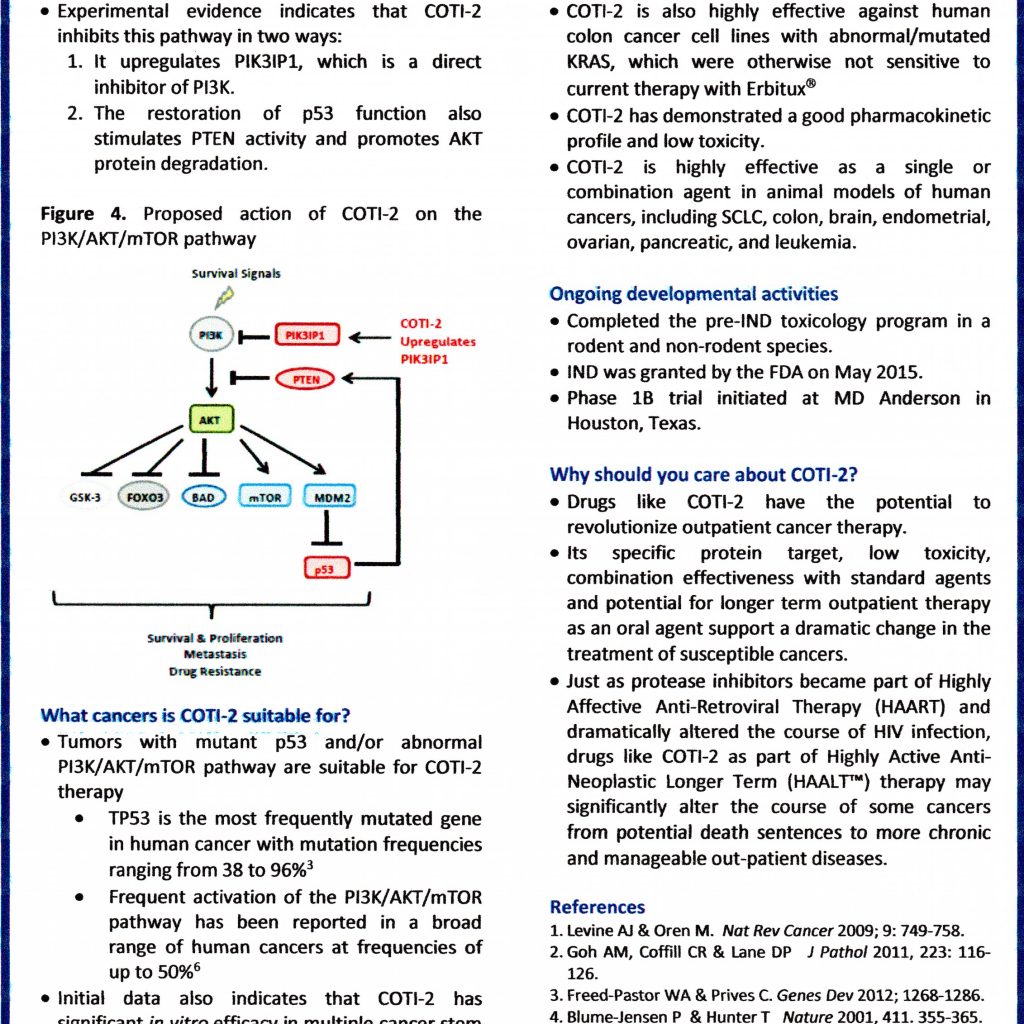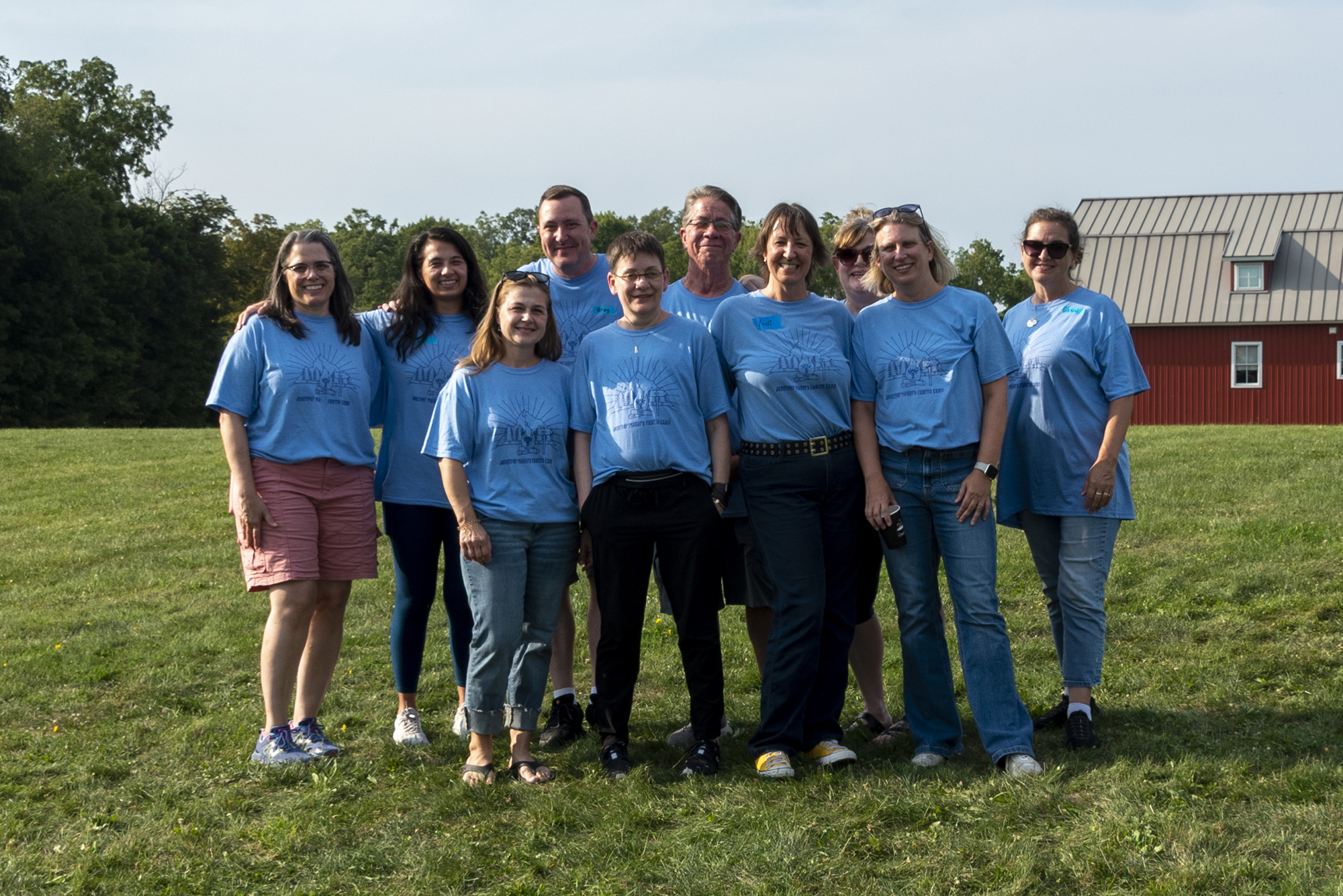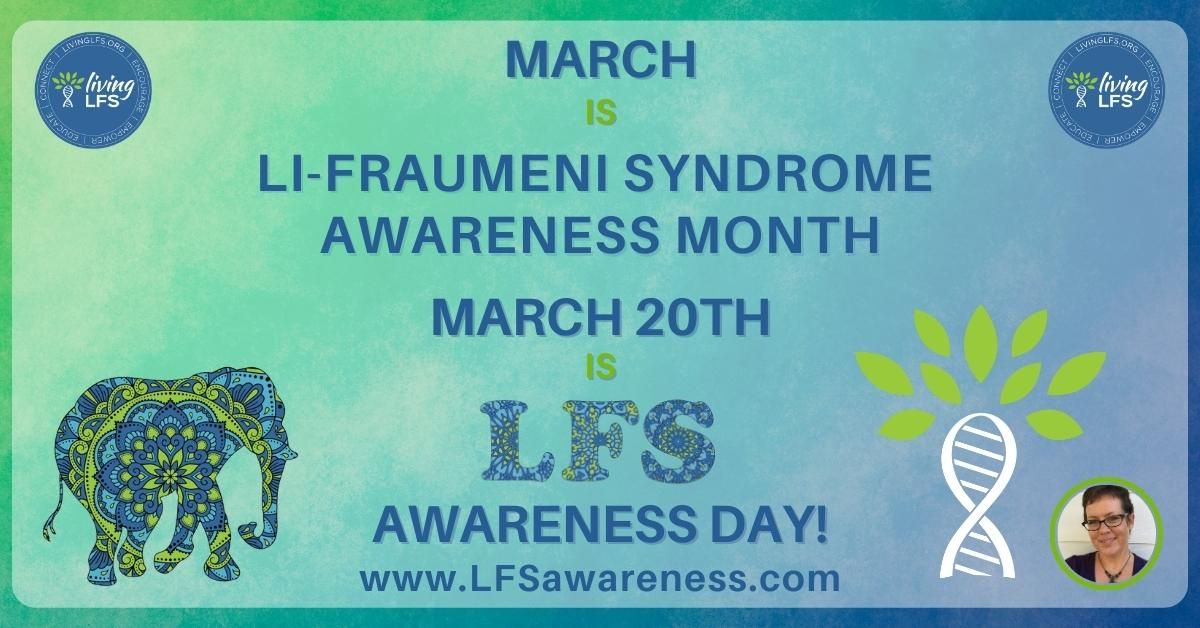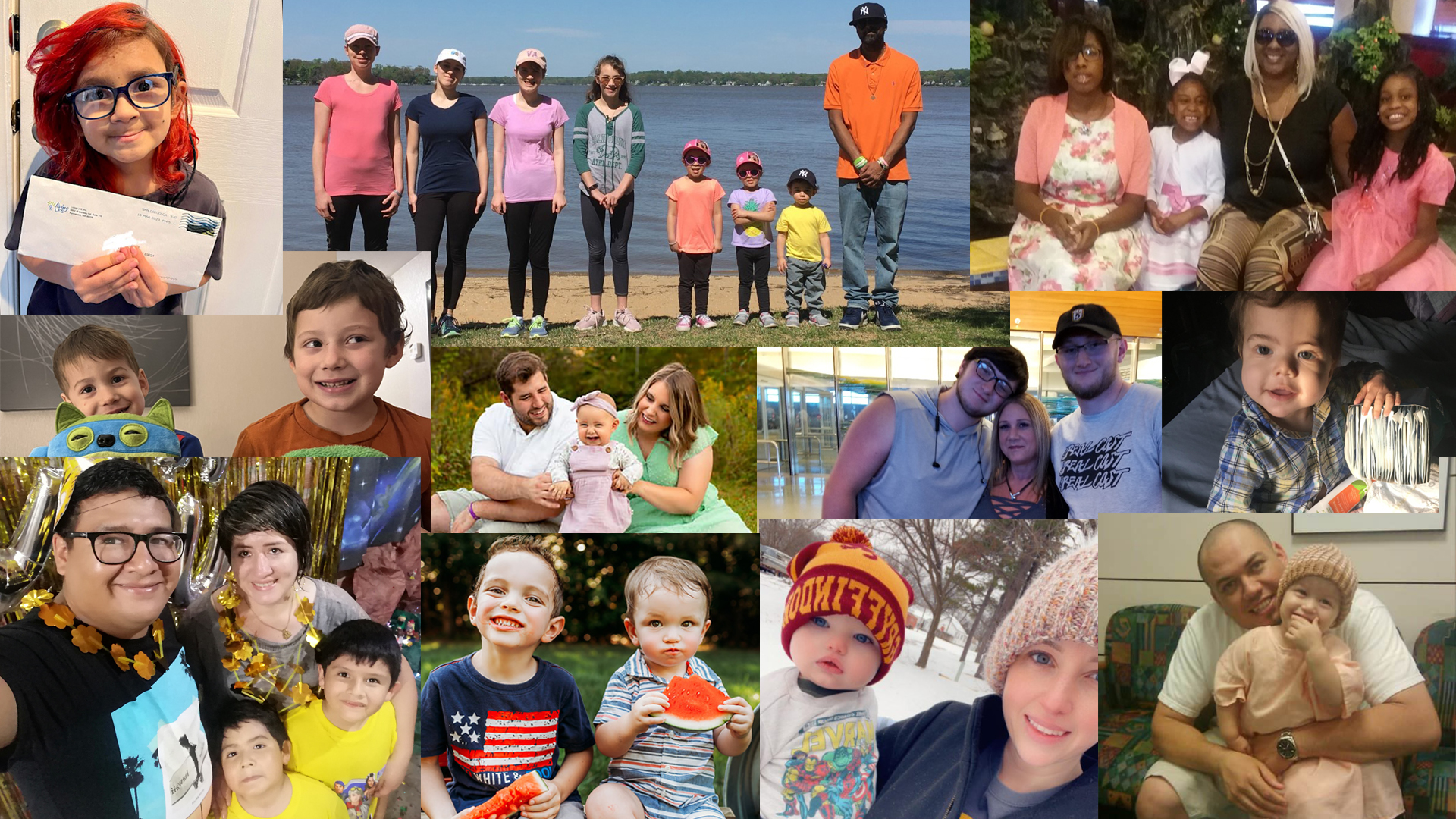One of the most exciting presentations at the REACH 16 International LFS Conference was information presented on COTI-2, a novel small molecule that helps repair some mutant p53. Dr. Wayne Danter is the Co-Founder, President and CEO of Critical Outcome Technologies, Inc., an Ontario based biopharmaceutical company that works to "be instrumental in saving thousands of lives by enabling accelerated development of new effective treatment options." For rare communities, like ours with Li-Fraumeni Syndrome, we truly appreciate any options that could help us. There is much excitement surrounding this small molecule, not just for those with LFS who often have treatment resistant, aggressive cancers, but for the greater cancer community. This is a groundbreaking and promising approach. A few years ago, Metformin became the first chemoprevention drug studied in LFS patients and empowered many to participate in the study. COTI-2 is a small molecule that is giving people with LFS big hope and for many this hope cannot come soon enough.
What is COTI-2?
COTI-2 is the name of a drug that was discovered by a computer program at Critical Outcome Technologies, called CHEMSAS. It works by refolding certain mutant p53 in a way that helps p53 work again. COTI-2 can be taken orally and does not appear to be toxic to healthy p53 or other healthy cells. It also seems to work well with some traditional chemotherapy agents like cisplatin used to treat many LFS cancers.
How Does COTI-2 WORK?
COTI-2 works on mutated p53. When the p53 protein is made(transcribed) from the incorrect directions(mutant DNA) - sometimes it creates a less functional protein p53 or sometimes the protein doesn't work at all. Say you have the word COT. If you change the O to an A, the word is now CAT, a word that has a different meaning but still a word. If you replace O with a C, then you have CCT. Not really a word. This is part of the reason we see so many different cancers in LFS, not all mutations are the same, some are more severe than others. Not only do the mutations make different protein shapes, the p53 protein itself has many jobs. Some people with LFS have many cancers, others have one or two and yet others never get cancer at all. If you want to learn more about mutations, check out our blog post Some p53 Mutations are Nonsense.
Why is COTI-2 Important?

Of course a drug that can restore p53 is important to people with germline TP53 mutations. Clinical Trials are necessary to show that drugs are safe and effective. These trials take time and participants. The idea is that if COTI-2 is both safe and effective, it could not only be used to treat many rare LFS cancers, but also the 50% of tumors among the general population that have mutated p53. Our LFS population is very small compared to the overall cancer community and it is part of the reason why getting trial data and targeted molecules for LFS is difficult. By creating a molecule that not only helps our rare population, but a good percentage of cancer patients in general, we will see progress.
How has COTI-2 been Tested?
COTI-2 molecules were chosen via computer simulation. The program looked at the structure of mutated p53 then tried to find a novel molecule that would repair the p53. COTI-2 was used to treat cancer cells lines in petri dishes, then p53 mutations were introduced into mouse fibroblast cells and then treated with the COTI-2 and then mouse animal models. Recently humans at MDAnderson with gynecological cancers were given Coti-2 as part of a Phase 1 trial and a direct result of COTI-2 receiving orphan drug status is important for trials like these because it facilitates the development of drugs for rare diseases like LFS that affect less than 200,ooo individuals. Researchers found, not only did COTI-2 decrease the amount of mutated p53, the amount of normal p53 increased and it was tolerated very well by the participants. Even at low doses, they saw a good response.
At the conference, Dr. Danter created much excitement when he announced they were moving ahead with the next trial in 2017. Although it may still be years away from being approved, this is a really great step. This may not be a magic bullet and cure all LFS cancers, but the hope and promise of the possibility is valued dearly and appreciated in our LFS community.
Resources
http://www.criticaloutcomeblog.com/blog-posts/p53-li-fraumeni-syndrome-and-coti-2
Clinical Trial- https://clinicaltrials.gov/ct2/show/NCT02433626
http://criticaloutcome.com/wp-content/uploads/2015/12/151205_Orphan-Drug-Application-LFS.pdf


